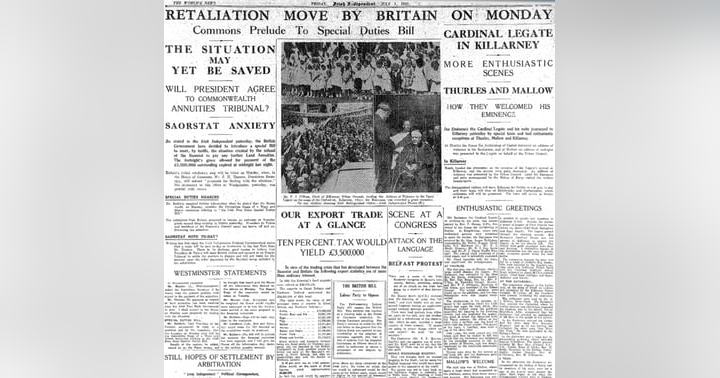Philip Cogan - Irish Composer - (c.1748 - 3 Feb, 1833)

Born around 1748 in County Cork, Philip Cogan's early life remains obscure. His documented musical journey began as a choirboy at St. Fin Barre's Cathedral, later serving as a lay vicar. This foundation equipped him with skills that propelled him onto the Dublin music scene.
Have you listened to our podcast? Get the latest on our Episode Page.
Cogan's talents extended beyond singing. He mastered both organ and piano, showcasing his abilities in various roles. In 1772, he secured a coveted position as a stipendiary at Christ Church Cathedral. However, his tenure was brief, with some attributing his departure to health concerns, while others suggest the city's vibrant musical offerings drew him elsewhere.
From 1780 to 1806, Cogan held the organist position at St. Patrick's Cathedral. Despite this role, his ambitions encompassed more. He embraced the stage, conducting orchestras at Smock Alley and Crow Street theatres. While this pursuit sometimes conflicted with his church duties, it highlighted his passion for the theatrical world.
While he contributed to church music, Cogan's true calling lay in opera and theatrical compositions. His prolific output included operas like "The Rape of Proserpine" (1776) and "The Ruling Passion" (1778), demonstrating his aptitude for dramatic storytelling and musical narratives. He also collaborated with other Dublin composers, contributing to projects like "The Contract" (1782).
Cogan's impact transcended entertainment. In 1787, he co-founded the Irish Musical Fund Society, demonstrating his commitment to supporting fellow musicians and fostering Dublin's musical landscape. He frequently participated in charitable concerts across churches, emphasizing his dedication to using his talents for social good.
Irish Pianist Una Hunt Performing: Cogan: Rondo from Op.8 No.3
Throughout his life, Cogan garnered significant respect within Dublin society. His pupils included renowned musicians like Michael Kelly and George Buchanan, solidifying his influence on future generations. While the emergence of composers like John Field in the 1820s gradually eclipsed his fame, Cogan's contributions to Irish music and opera remain significant, earning him a well-deserved place in the nation's musical history.
For a more detailed biography, please visit the Dictionary of Irish Biography => Philip Cogan
















